Zurich Film Festival’s balancing act: #DontRockTheBoat
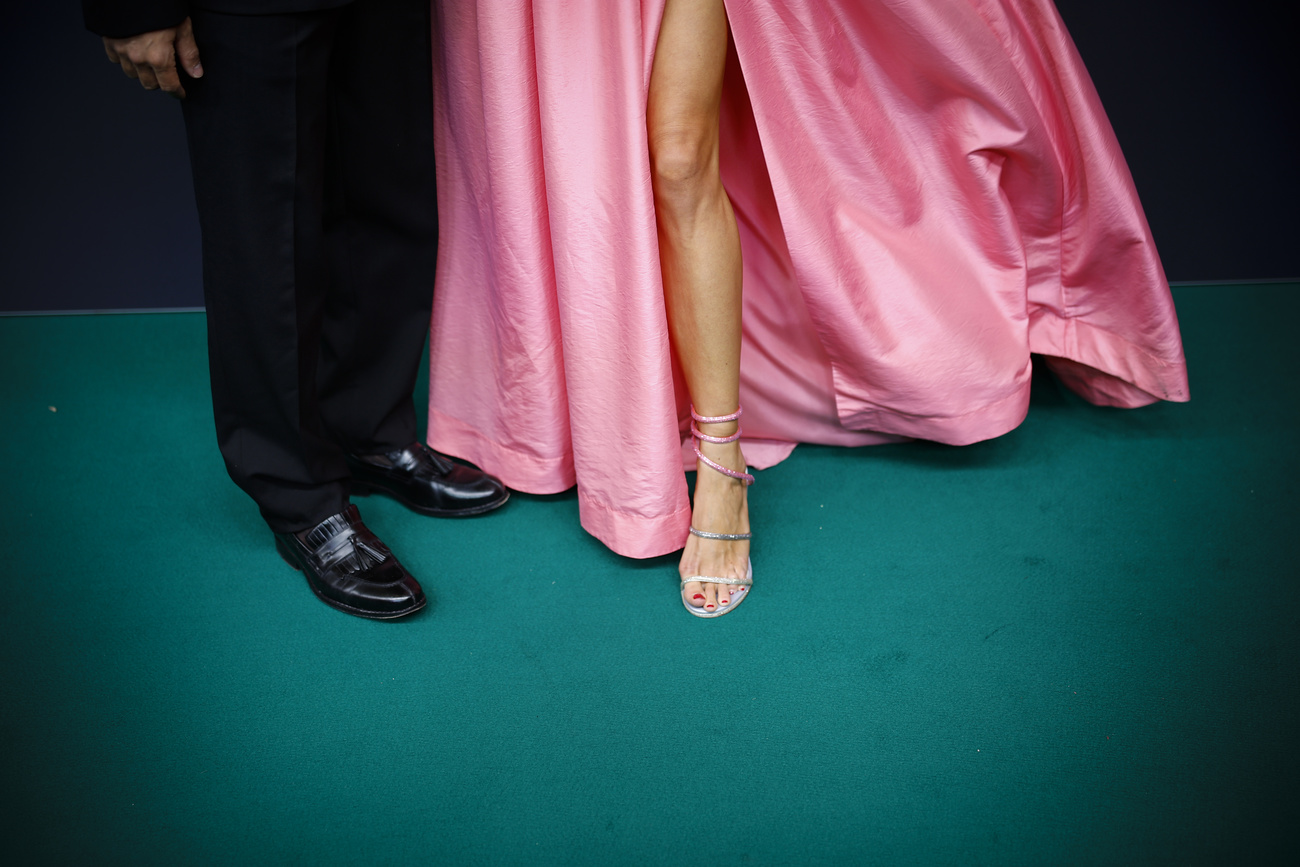
One of the biggest Swiss film festivals is still finding its footing in the film circuit. Film critic Alan Mattli reflects on why the Zurich Film Festival’s superficial engagement with the “zeitgeist” (spirit of the time) is unconvincing.
Walking into the lobby of Zurich’s Frame cinema on the eve of the 19th Zurich Film Festival (ZFF), it’s not immediately obvious that this will become its flagship location.
One day before its official inauguration, a mere two days before the festival begins in earnest, the six-screen theatre is abuzz with workers carrying large cardboard boxes, testing the ticketing system, checking light fixtures. The site operated under the name Kosmos before its owners declared bankruptcy in late 2022 and the ZFF took over the space to use it as a year-round venue.
The Frame formally opened on September 27 with a screening of Swiss director Michael Steiner’s new thriller, Early Birds. The festival’s new venue owes its name to the discontinued quarterly film magazine published by the Swiss newspaper group Neue Zürcher Zeitung (NZZ), which is also the ZFF’s majority shareholder.
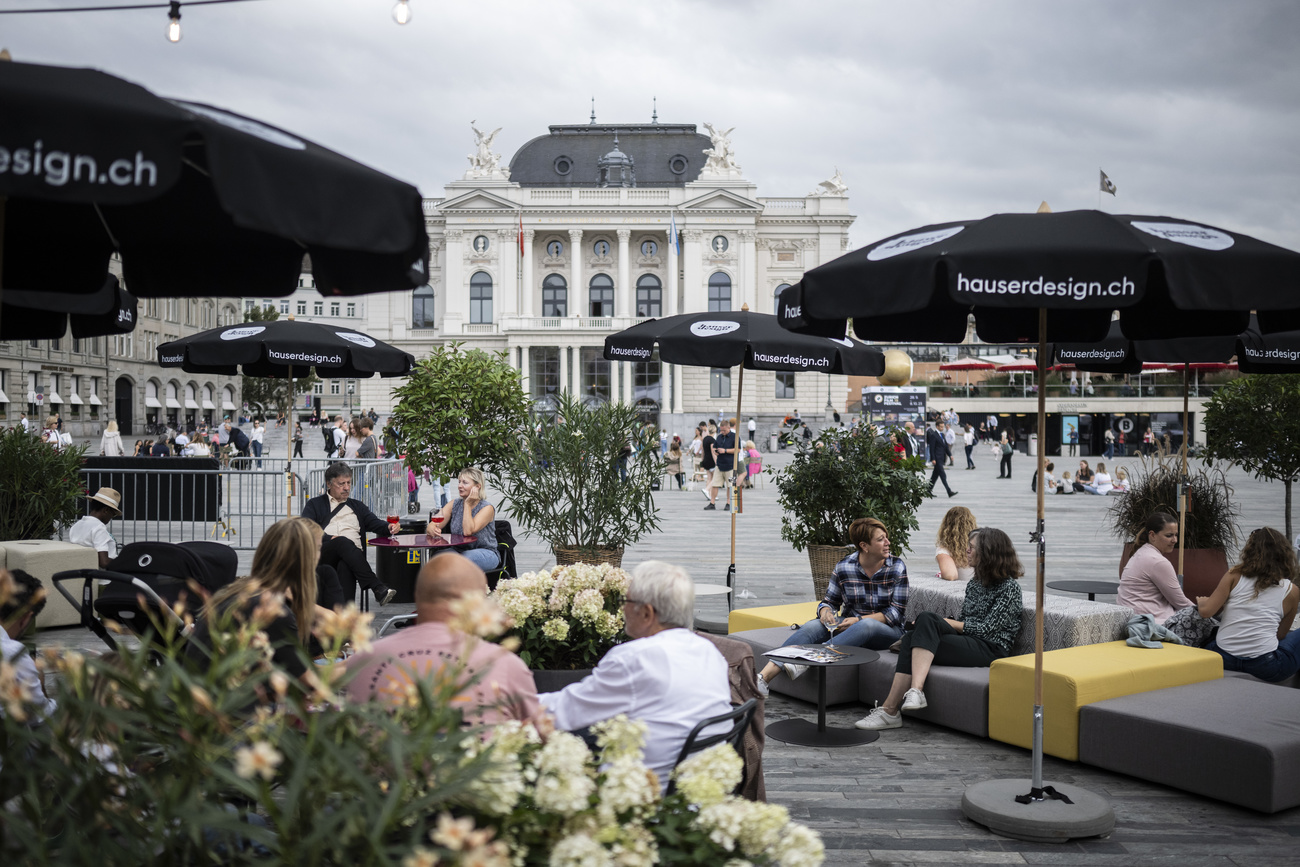
The same might be said about the festival itself. Two years ago, I wondered in this very spot where the ZFF envisioned itself going creatively and philosophically, given its somewhat narrow focus on celebrity guests.
The event only seems to make international headlines in the context of controversy. This was the case in 2009 with the belated arrest of director Roman Polanski on rape charges and when Johnny Depp was fêted on the festival’s green carpet in 2018 and 2020, against the backdrop of domestic abuse accusations by his ex-wife Amber Heard.
Soul-searching
We are now just over three years into the stewardship of artistic director Christian Jungen, the former head of culture at the weekly newspaper NZZ am Sonntag. There is one year to go until the ZFF’s 20th-anniversary edition, which it will likely seek to mark with all the pomp and circumstance its considerable public and private funds can muster. So it seems pertinent to ask the question again: what does the ZFF stand for?
Its own rhetoric delivers an answer that’s as straightforward as it is unsatisfying. “Cause life is better with movies,” originally the ZFF’s 2020 rallying cry in support of the theatrical experience in times of pandemic and at-home streaming options, has become its official slogan.
It epitomises the image it strives to project: the ZFF is a place that celebrates all things film, and it emphatically does not subscribe to the old distinction between the “high culture” of festival filmmaking and the “low culture” of mainstream fare.
These are laudable sentiments in principle, but as a guiding ethos, they are rather vague. In 2023, one would be hard-pressed to find a film festival that does not clearly spell out this vision.
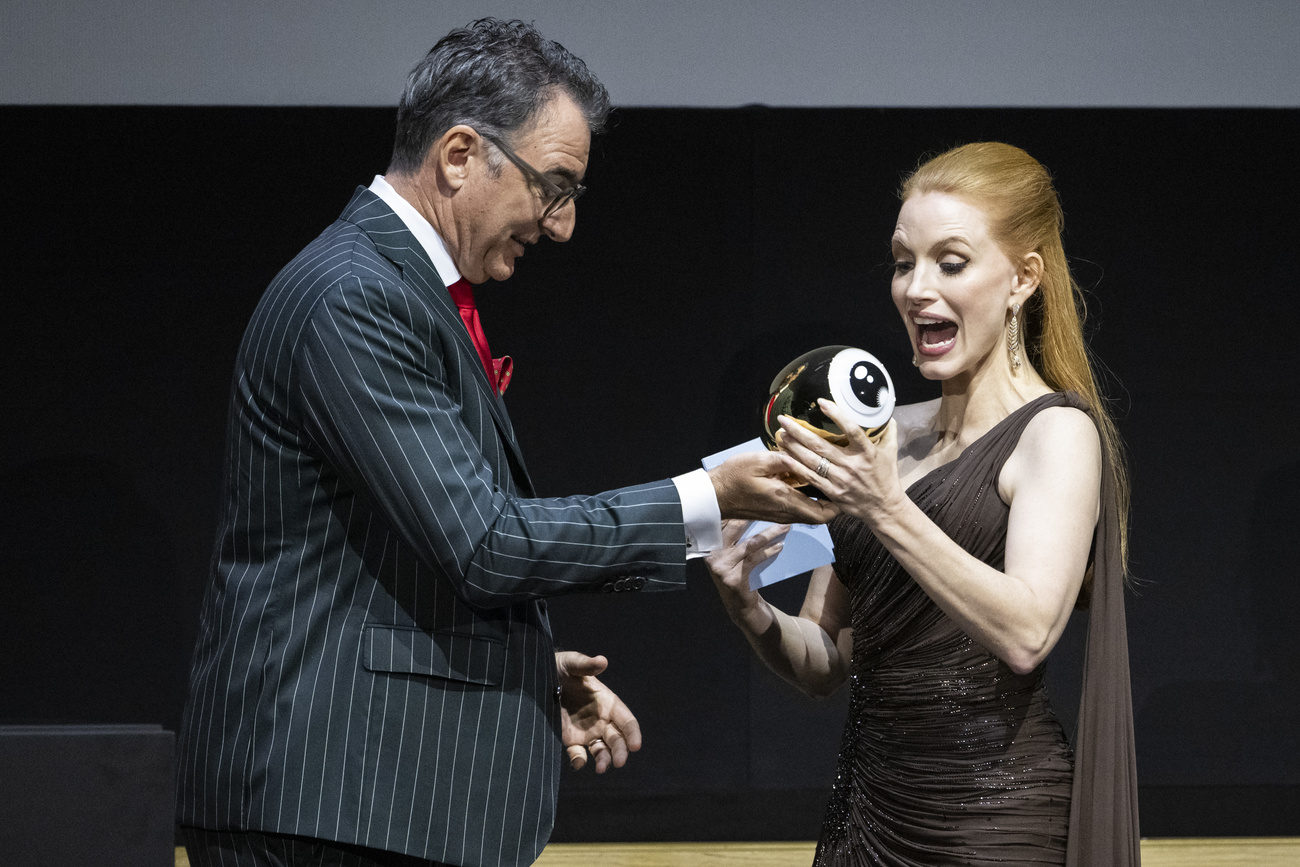
Lost in hashtags
One might find a more substantial answer in the ZFF’s actual programmingExternal link. But true insight lies beyond the dozens of star-studded gala premieres and special screenings, and even beyond the festival’s three newcomer-focused competitions, recently described as a “fig leaf” by cultural journalist Florian KellerExternal link.
The key to the ZFF’s vision in this year’s edition is in the Hashtag section, a nod to the social media language that denotes key words and phrases with the symbol #. Under this heading, the festival draws together a range of current films, all united by a common theme that is then condensed into a hashtag. The 2023 iteration, following in the footsteps of topics like #BigData, #GetUpStandUp, and #MyReligion, is dedicated to #Masculinity.
As per the festival’s own communicative channelsExternal link, the eight-film programme endeavours to “show masculinity in all its facets.” That inclusive view encompasses “men with painted fingernails,” “feminine clothing,” and “pearl necklaces” and “traditional images of masculinity,” as personified by George Clooney and Tom Cruise.
Tackling these perceived tensions is undoubtedly worthwhile in our current cultural moment that places gender at the heart of fierce culture wars in Europe, the United States and beyond. But one might question the ZFF’s rigour in the matter.
For one, while the selection of films itself is not uninteresting, its presentation and framing seem to be somewhat at odds with the mission statement’s progressive aesthetics. The original press release includes a jab at “the inflationary use of the term ‘toxic masculinity’” – the notion that some people’s idea of “manliness” perpetuates domination, homophobia, and aggression.
The programme booklet invokes the spectre of “today’s political correctness”; while a ZFF newsletter cited troubledExternal link non-binary actor Ezra Miller as a positive male role model. Meanwhile, the ZFF website consistently misgenders Georgian director Elene Naveriani, who is competing in the festival’s focus competition and who, like Miller, uses they/them pronouns.

Moreover, even though #Masculinity explicitly addresses a major cultural discourse, the festival’s actual engagement with the topic remains limited. Of the 15 items making up the ZFF’s surrounding programme – workshops, masterclasses, concert events – none is connected to the Hashtag section: no panel discussions, no exhibits, no chance for #Masculinity audiences to wrestle further with the issue broached by the festival organisers.
It’s a move reminiscent of the 2022 edition’s decision to screen the German children’s movie The Young Chief Winnetou. The latter production came under public scrutiny over its revival of Karl May’s colonial fantasy of Native American life, and its casting of a non-indigenous actor in the leading role. On his public InstagramExternal link, Christian Jungen called the film’s inclusion an example of film festivals being “a site of debate”; but the ZFF offered no such debate – it screened the movie, and that was that.
Of course, a festival’s vision is not defined by individual Instagram posts, newsletters, and programme notes. But a pattern suggests itself when you take into account the looming presence of the NZZ media group, whose affiliate publications skew centre-right to right-wing editorially, the courting of outrage from the left – at one point, Roman Polanski was slated to make an appearance at this year’s festival – and the lip service being paid to open debate without delivering on that promise.
In effect, the ZFF performs a delicate balancing act, wrapping itself in the broadly progressive trappings of contemporary film culture whilst giving a nod and a wink to the conservative sceptics of that very progressivism.

More
Child abuse allegations: ‘The Läderach brand has been badly damaged’
And the tendency transcends film. Following an SRF documentary chronicling the abuse suffered by pupils at the hands of Jürg Läderach, the co-founder and former head of the Swiss chocolate-maker bearing his name, the ZFF swiftly terminated its commercial partnership with the Läderach brand. It notedExternal link that “many people found the SRF documentary disturbing,” while also stressing that “there are no allegations towards the current management of Läderach,” and concluding that it wants to focus “solely on the joy of cinema”. The festival declined to elaborate further on the matter.
In the face of the fact that buying Läderach chocolate has since become a point of pride in “anti-cancel culture” circles, this reticence to address the actual allegations that ostensibly led to the break with the brand speaks to what seems to be the festival’s overarching philosophy: don’t rock the boat.
In other words, superficially engage with the progressive tendencies of the times without alienating even its more reactionary opponents. So far, it has proved a viable strategy financially. But, with political polarisation on the rise, it may prove an unsustainable strategy in the long run.

In compliance with the JTI standards
More: SWI swissinfo.ch certified by the Journalism Trust Initiative
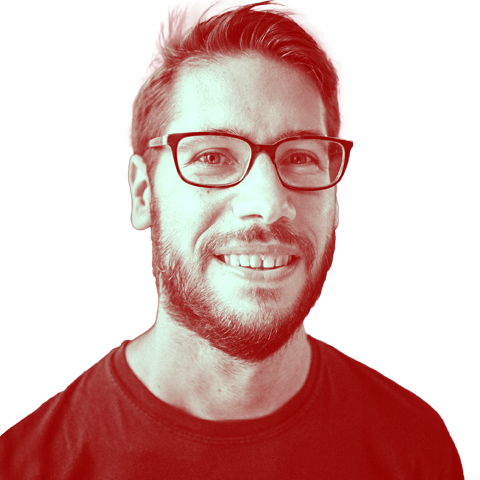








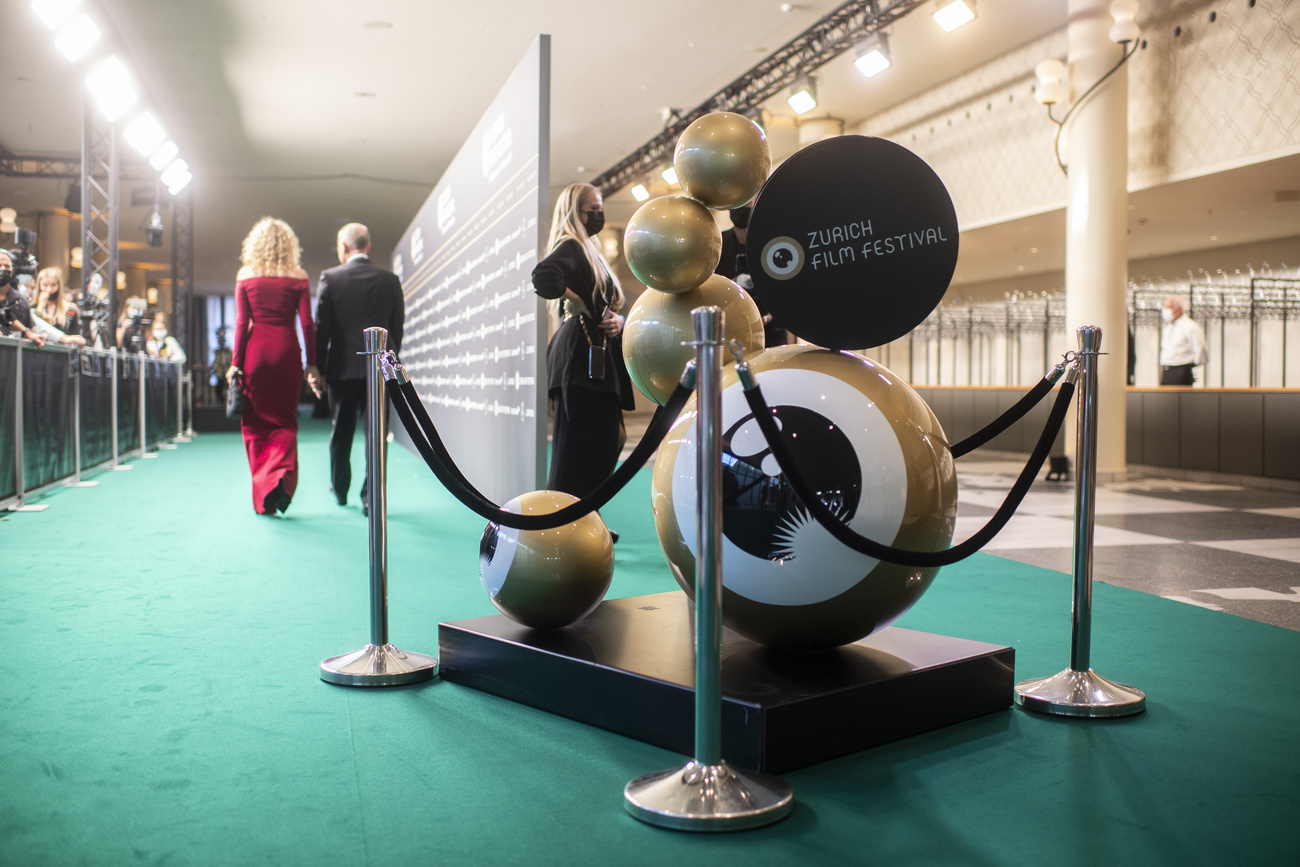


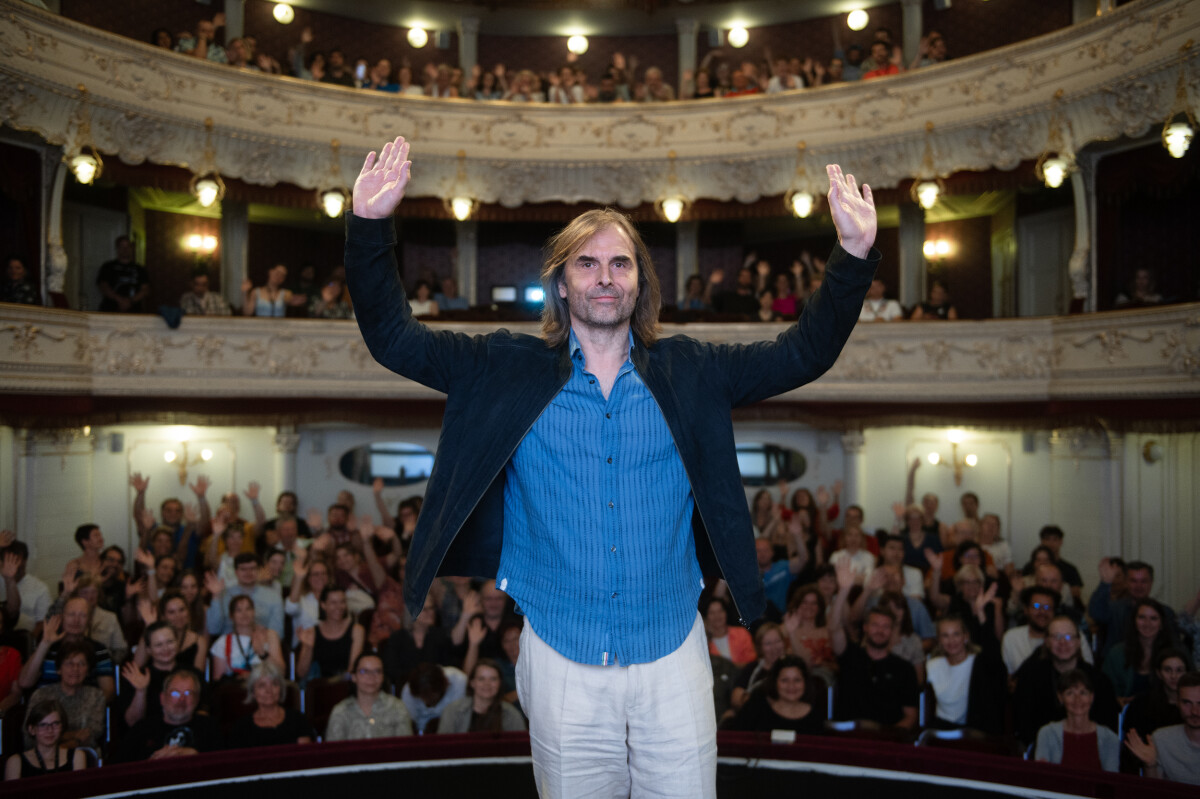
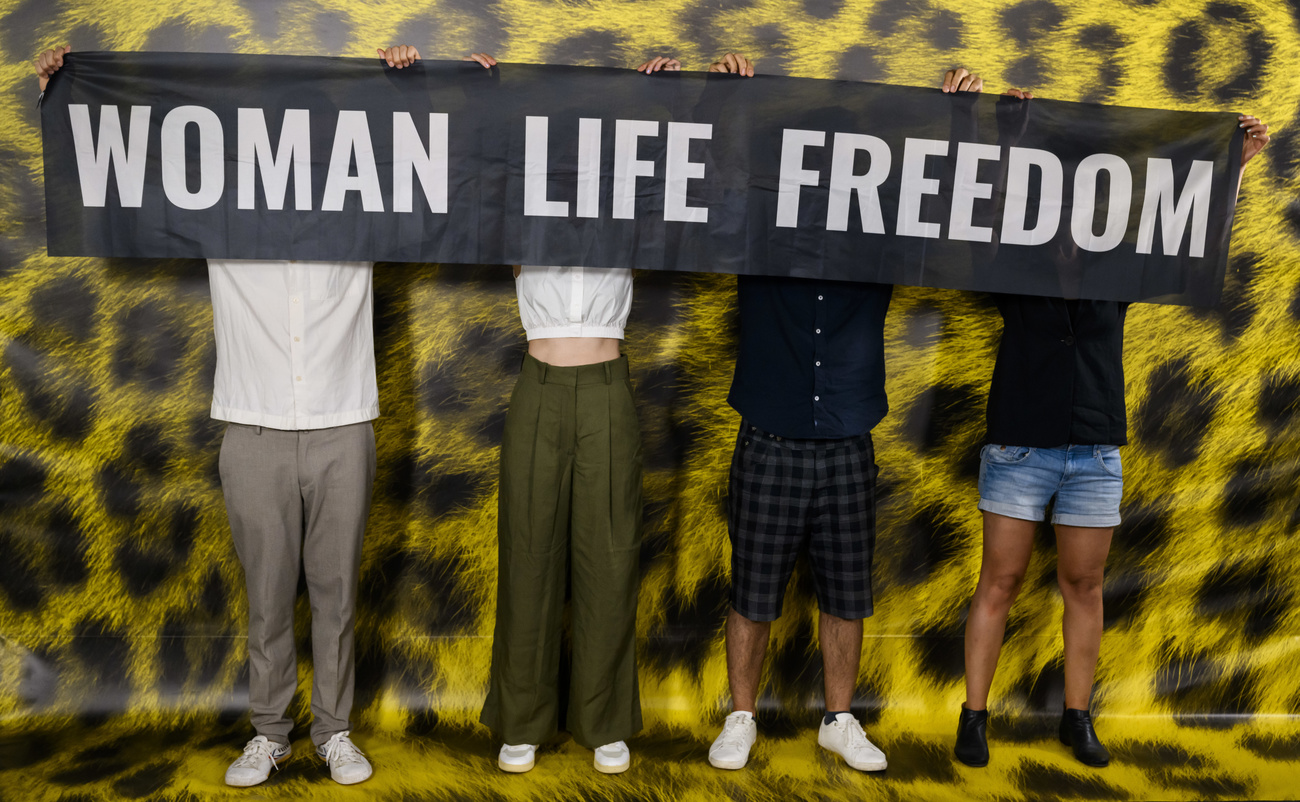
You can find an overview of ongoing debates with our journalists here . Please join us!
If you want to start a conversation about a topic raised in this article or want to report factual errors, email us at english@swissinfo.ch.